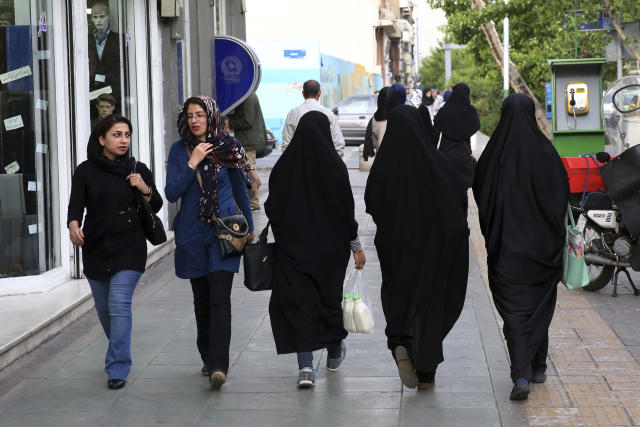Iran's morality police return after protests in a new campaign to impose Islamic dress on women

Views (54)

Iranian authorities on Sunday announced a new campaign to force women to wear the Islamic headscarf and morality police returned to the streets 10 months after the death of a woman in their custody sparked nationwide protests. The morality police had largely pulled back following the death of 22-year-old Mahsa Amini last September, as authorities struggled to contain mass protests calling for the overthrow of the theocracy that has ruled Iran for over four decades.
DUBAI, United Arab Emirates (AP) — Iranian authorities on Sunday announced a new campaign to force women to wear the Islamic headscarf and morality police returned to the streets 10 months after the death of a woman in their custody sparked nationwide protests.
The morality police had largely pulled back following the death of 22-year-old Mahsa Amini last September, as authorities struggled to contain mass protests calling for the overthrow of the theocracy that has ruled Iran for over four decades.
Authorities insisted throughout the crisis that the rules had not changed. Iran's clerical rulers view the hijab as a key pillar of the Islamic revolution that brought them to power, and consider more casual dress a sign of Western decadence.
On Sunday, Gen. Saeed Montazerolmahdi, a police spokesman, said the morality police would resume notifying and then detaining women not wearing hijab in public. In Tehran, the men and women of the morality police could be seen patrolling the streets in marked vans.
Late Saturday, police arrested Mohammed Sadeghi, a young and relatively unknown actor, in a raid on his home that he appears to have broadcast on social media. Earlier, he had posted a video in response to another online video showing a woman being detained by the morality police. “Believe me, if I see such a scene, I might commit murder,” he said.
The website of the semi-official Hamshahri daily, which is affiliated with the Tehran municipality, said he was arrested for encouraging people to use weapons against the police.
The battle over the hijab became a powerful rallying cry last fall, with women playing a leading role in the protests. The demonstrations quickly escalated into calls for the overthrow of Iran's clerical rulers, whom the mostly young protesters accuse of being corrupt, repressive and out of touch. Iran's government blamed the protests on a foreign conspiracy, without providing evidence.
In a recent case, actress Azadeh Samadi was barred from social media and ordered by a court to seek psychological treatment for "antisocial personality disorder" after appearing at a funeral two months ago wearing a cap on her head.
0 Likes
